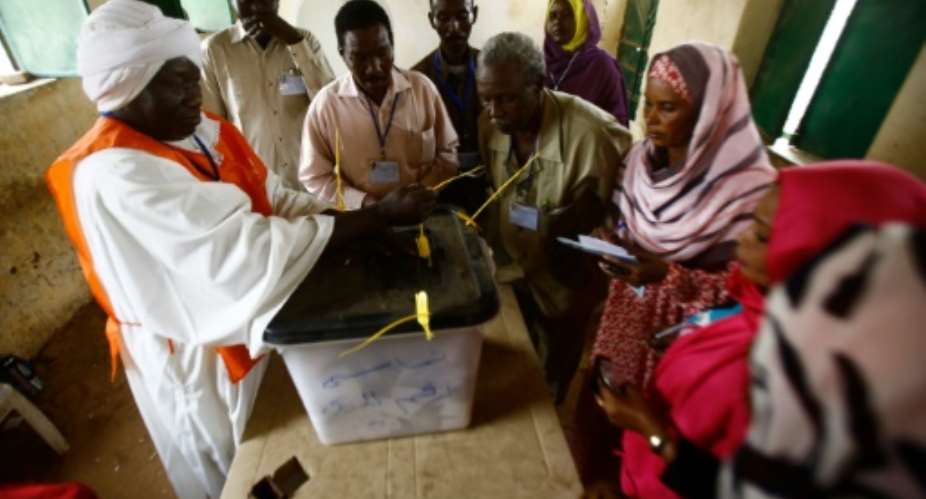El Fasher (Sudan) (AFP) - Polls closed across Sudan's Darfur late Wednesday after a referendum on the restive region's status, with officials hailing the vote as a success despite international criticism and a rebel boycott.
Polling centres closed at 6.00 pm (1500 GMT) at the end of the three-day referendum to decide whether to unite Darfur's five states into a single, autonomous region, with a handful of voters coming to cast their votes late.
"The centres are closed now and the operation went well," said Omar Ali Jomaa, head of the referendum commission.
The commission did yet not have turnout figures as many centres were in remote areas where communication is difficult, he told AFP.
Insurgents who since 2003 have battled the government of President Omar al-Bashir -- wanted on war crimes charges related to Darfur's conflict -- boycotted the referendum.
A single, autonomous region has long been a demand of the rebels but they said ongoing unrest in Darfur meant the vote would be unfair.
Bashir, whose ruling National Congress Party supported the five-state system, insisted the ballot take place as it was stipulated in a 2011 peace agreement signed with some rebel groups.
Washington and Paris had criticised the election, saying conditions in the region meant the result might not be credible.
Heavy clashes between troops and the Sudan Liberation Army led by Abdulwahid Nur in the Marra mountain range at the heart of Darfur have forced at least 100,000 people to flee their homes since mid-January, the United Nations says.
Ethnic minority rebels mounted an insurgency against the Arab-dominated government in Khartoum 13 years ago, complaining the region was being marginalised.
There are more than 2.5 million people displaced by the conflict living in the region and 300,000 people have been killed in the conflict, according to the United Nations.





 Dumsor: Don't rush to demand timetable; the problem may be temporary — Atik Moha...
Dumsor: Don't rush to demand timetable; the problem may be temporary — Atik Moha...
 Space X Starlink’s satellite broadband approved in Ghana — NCA
Space X Starlink’s satellite broadband approved in Ghana — NCA
 2024 election will be decided on the grounds of the economy; choice of running m...
2024 election will be decided on the grounds of the economy; choice of running m...
 Dumsor: We're demanding less; just give us a timetable — Kwesi Pratt to ECG
Dumsor: We're demanding less; just give us a timetable — Kwesi Pratt to ECG
 Do I have to apologise for doing my security work, I won’t – Simon Osei-Mensah r...
Do I have to apologise for doing my security work, I won’t – Simon Osei-Mensah r...
 All my businesses have collapsed under Akufo-Addo — NDC Central regional chair
All my businesses have collapsed under Akufo-Addo — NDC Central regional chair
 Military, Prison Officers clash in Bawku, three injured
Military, Prison Officers clash in Bawku, three injured
 GRA-SML contract: MFWA files RTI request demanding KPMG report
GRA-SML contract: MFWA files RTI request demanding KPMG report
 Court threatens to call second accused to testify if NDC's Ofosu Ampofo fails to...
Court threatens to call second accused to testify if NDC's Ofosu Ampofo fails to...
 Family accuses hospital of medical negligence, extortion in death of 17-year-old...
Family accuses hospital of medical negligence, extortion in death of 17-year-old...
